Hyperthyroidism, also referred to as an overactive thyroid, is a condition
in which the thyroid gland produces an excess of thyroid
hormones. This causes the body's metabolism to speed up,
impacting vital functions such as heart rate, body temperature
regulation, and energy levels.
The thyroid gland, situated at the front of the neck, plays a central role
in managing how your body uses energy.

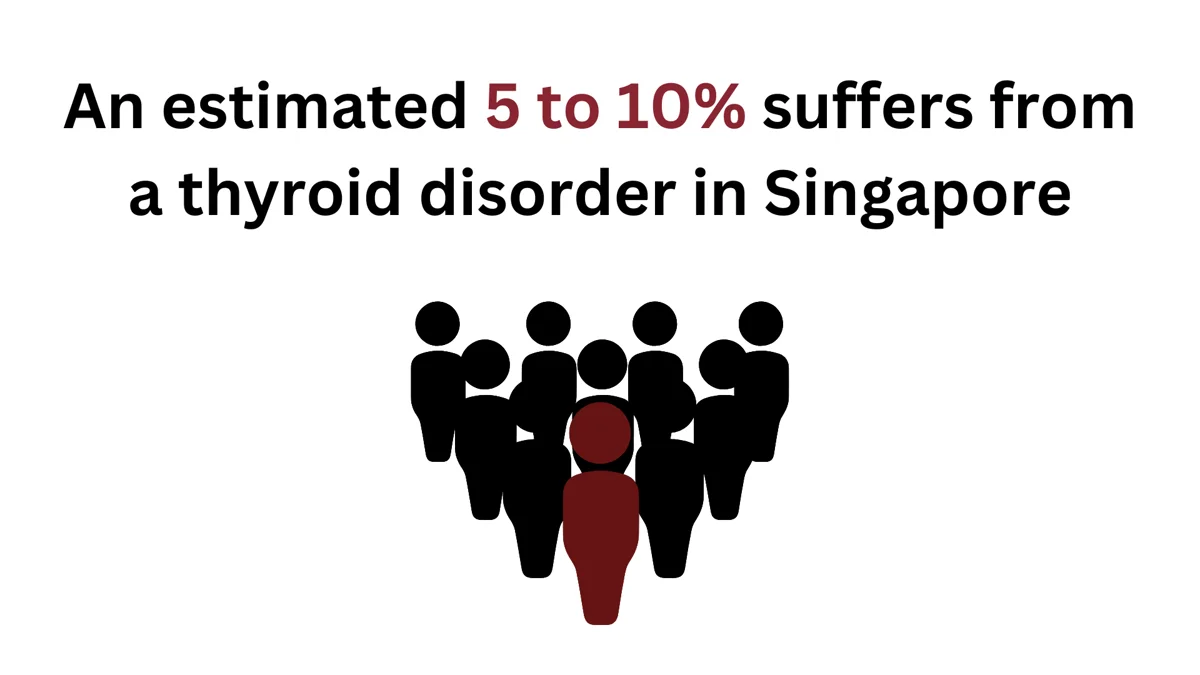
Hyperthyroidism is among the most common thyroid disorders in Singapore, affecting around 5 to 10 percent of the population. Women are five times more likely than men to develop these conditions.
Hyperthyroidism Causes
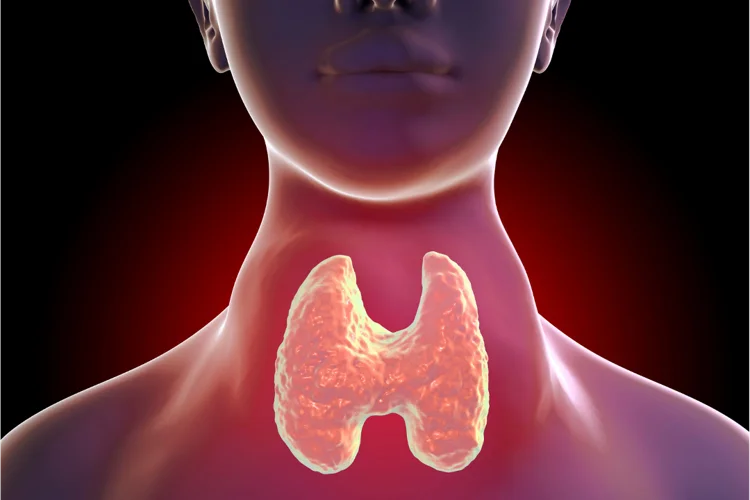
Graves' disease, an autoimmune condition where the immune system mistakenly attacks the thyroid gland, causes it to produce too much thyroid hormone. This is the most common cause of hyperthyroidism in Singapore, responsible for about 70% of cases. Other reasons for hyperthyroidism include toxic nodular goitre, where growths in the thyroid lead to excessive hormone production, and high iodine levels, which can result from certain medications or dietary intake. Subacute thyroiditis, an inflammation of the thyroid gland, can also temporarily raise hormone levels.
Hyperthyroidism Symptoms
Symptoms of hyperthyroidism can vary from person to person but may include the following:
- Rapid heartbeat
- Unexplained weight loss
- Increased appetite
- Nervousness and irritability
- Sweating and heat intolerance
- Sleep problems
Some individuals may also experience tremors, fatigue, and changes in menstrual cycles. In severe cases, symptoms like bulging eyes and goitre (an enlarged thyroid gland) may occur.

Complications of Hyperthyroidism
If left untreated, hyperthyroidism can lead to serious complications such as heart problems, including atrial fibrillation (irregular heartbeat) and congestive heart failure. Another significant risk is osteoporosis, where bones become weak and brittle due to the accelerated loss of calcium. Additionally, thyroid eye disease, particularly associated with Graves' disease, can cause vision problems.
How to Test for Hyperthyroidism?
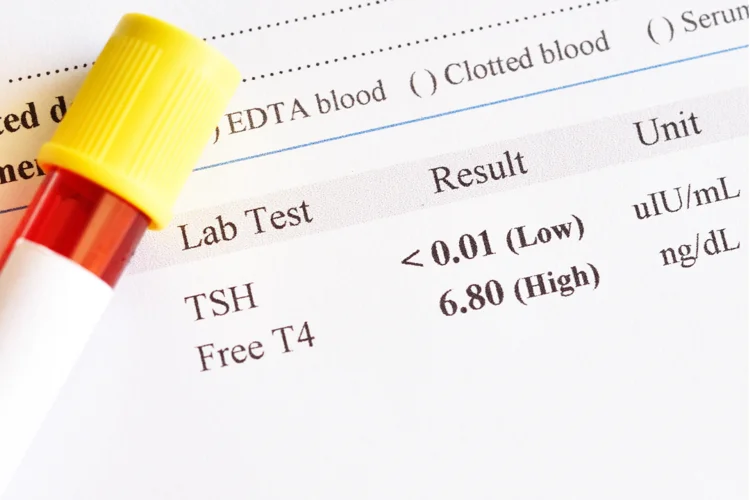
Hyperthyroidism is diagnosed through a combination of physical examination, blood tests, and imaging studies. Blood tests, also known as thyroid function tests, typically measure levels of thyroid-stimulating hormone (TSH), free thyroxine (T4), and triiodothyronine (T3). A low TSH level coupled with high T4 or T3 levels can indicate hyperthyroidism. Imaging tests such as thyroid ultrasound may also be used to assess the thyroid gland's structure and function.
Hyperthyroidism Treatment
In Singapore, hyperthyroidism is primarily treated through the following methods:
- Medication: Antithyroid drugs such as methimazole, carbimazole, and propylthiouracil are commonly prescribed to reduce thyroid hormone production. Beta-blockers like propranolol and atenolol are also used to control symptoms such as rapid heartbeat and tremors by mitigating the effects of excess thyroid hormones on the body.
- Radioactive Iodine Therapy (RAI): This treatment involves taking radioactive iodine orally, which gradually shrinks the thyroid gland and reduces its hormone production, making it an effective option for many patients.
- Surgery: When other treatments are unsuitable, a thyroidectomy – surgery to remove part or all of the thyroid gland – may be recommended. This procedure often necessitates lifelong thyroid hormone replacement therapy to maintain normal hormone levels post-treatment.
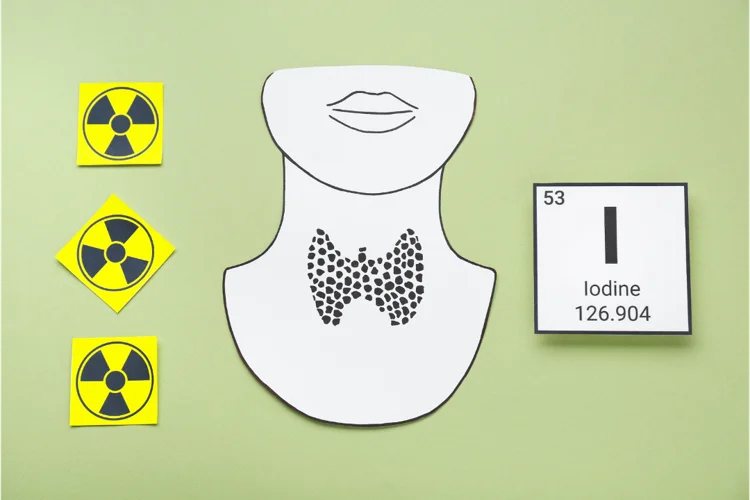
Cost of Thyroid Function Tests in Singapore
At ATA Medical, we offer various thyroid function tests and treatment for hyperthyroidism with the following prices:
| Test | Price* |
|---|---|
| Consultation | From $49.05 |
|
Thyroid Profile 1 Free T4 (FT4) + Thyroid Stimulating Hormone (TSH) |
$37.06 |
|
Thyroid Profile 2 Free T4 (FT4) + Free T3 (FT3) |
$43.60 |
|
Thyroid Profile 3 Free T4 (FT4) + Thyroid Stimulating Hormone (TSH) + Free T3 (FT3) |
$54.50 |
|
Thyroid Profile 4 Free T4 (FT4) + Thyroid Stimulating Hormone (TSH) + Thyroglobulin Antibody + Thyroid Peroxidase Antibody (Anti-TPO) |
$74.12 |
|
Thyroid Profile 5 Free T4 (FT4) + Thyroid Stimulating Hormone (TSH) + Free T3 (FT3) + Thyroglobulin Antibody + Thyroid Peroxidase Antibody (Anti-TPO) |
$95.92 |
| Thyroid Ultrasound | $163.50 |
| Carbimazole 5 mg | $0.22 per tab |
^Prices last updated on Jan 28, 2026. While every effort is made to keep pricing information up to date, please contact our team to confirm the latest rates.
Besides thyroid function tests, we also offer testing for various hormones from $32.70 excluding fees for consultation and reviewing results.
Where Can I Do Thyroid Function Tests in Singapore?
ATA Medical is conveniently located at 3 different locations:
- Tanjong Pagar Medical Clinic (Closest MRT: Tanjong Pagar EW15)
- Orchard Clinic (Closest MRT: Orchard Boulevard TE13)
- Jurong Clinic (Closest MRT: Jurong East NS1/EW24)
Summary
Hyperthyroidism is a manageable condition with a range of effective treatments available in Singapore. Early diagnosis and proper management are essential in preventing health complications. If you are experiencing symptoms associated with hyperthyroidism, it's important to consult a doctor to explore testing and treatment options. Timely intervention can significantly improve outcomes and help maintain a good quality of life.
Why Choose ATA Medical?




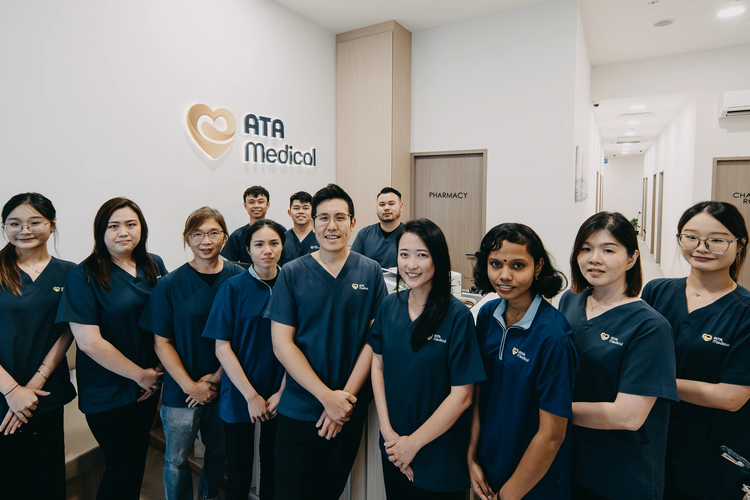



Delivering Care Patients Appreciate
What to Expect
FAST RESULTS
We strive to deliver your results within 7 working days.
MINIMUM WAITING TIME
Our patient-oriented processes ensure your waiting time is kept to a minimum.
Friendly Service
Service is a top priority for us at ATA Medical.
Email Us at camden@atamed.sg
for More Information.
Book Your Hyperthyroidism Treatment With Us at 88770326.

